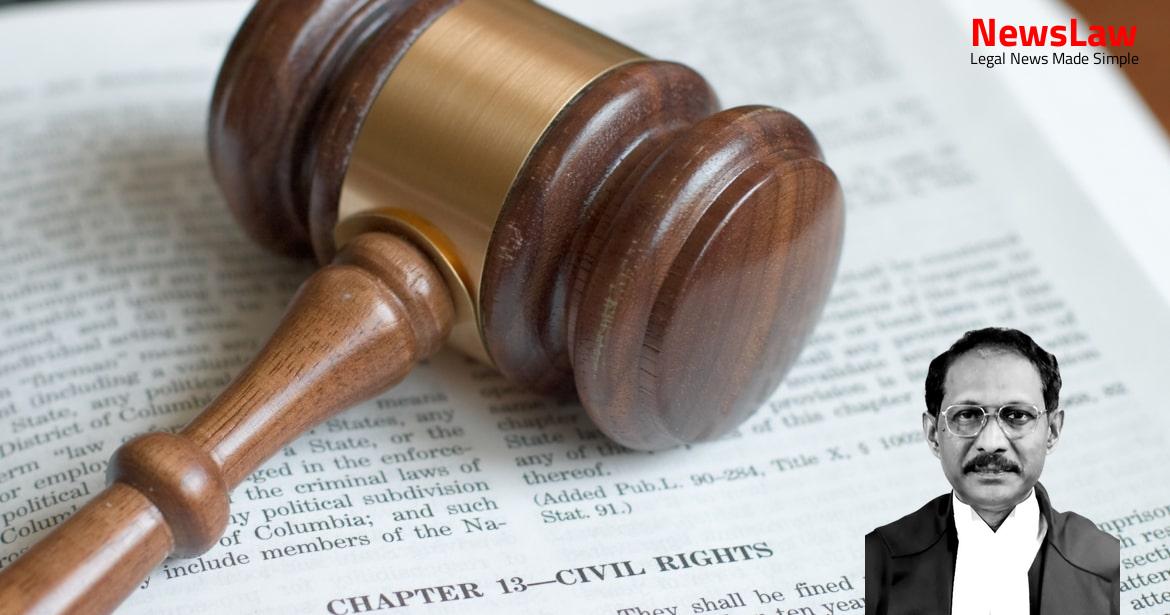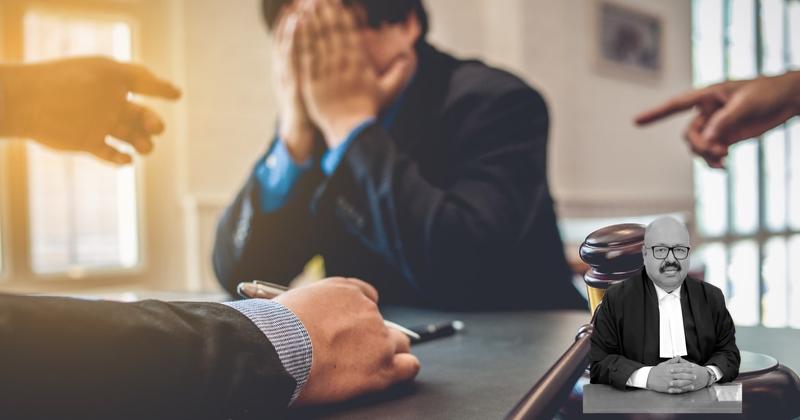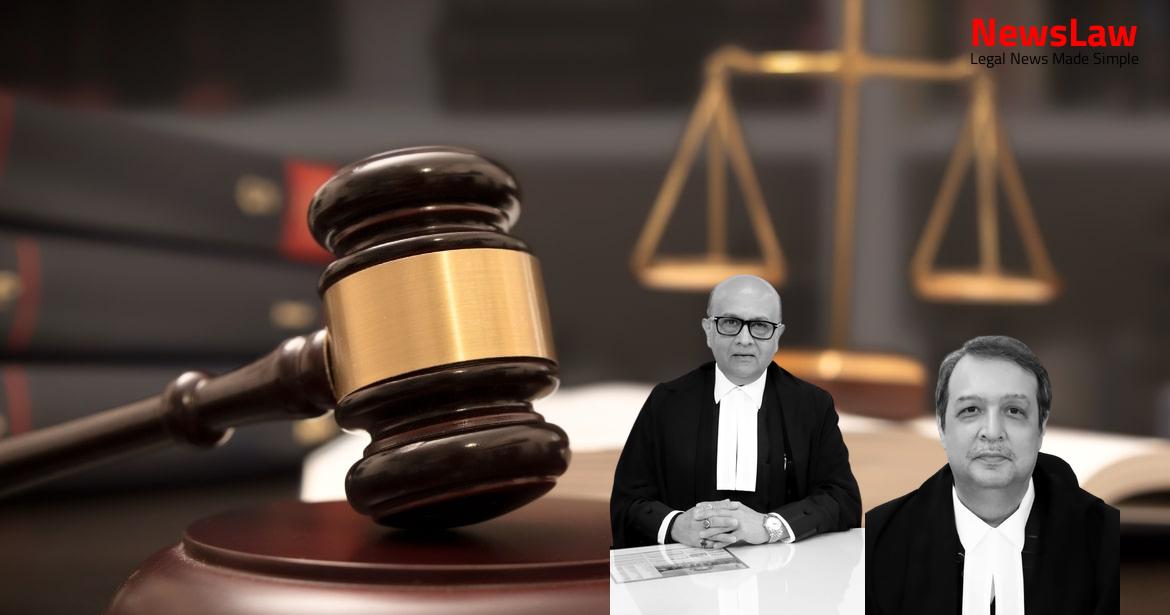In the backdrop of certain earlier decisions of this Court, in particular, this Court was engaged with the question as to whether the Court should issue suitable directions or set in place norms to provide for what is described as Advance Directives. In our considered opinion, Advance Medical Directive would serve as a fruitful means to facilitate the fructification of the sacrosanct right to life with dignity. It shall be in writing clearly stating as to when medical treatment may be withdrawn or no specific medical treatment shall be given which will only have the effect of delaying the process of death that may otherwise cause him/her pain, anguish and suffering and further put him/her in a state of indignity. 198.2.2.
The document should be signed by the executor in the presence of two attesting witnesses, preferably independent, and countersigned by the jurisdictional Judicial Magistrate of First Class (JMFC) so designated by the District Judge concerned. The JMFC shall forward one copy of the document to the Registry of the jurisdictional District Court for being preserved. The JMFC shall cause to inform the immediate family members of the executor, if 4 not present at the time of execution, and make them aware about the execution of the document. If the physician treating the patient (executor of the document) is satisfied that the instructions given in the document need to be acted upon, he shall inform the executor or his guardian/close relative, as the case may be, about the nature of illness, the availability of medical care and consequences 5 of alternative forms of treatment and the consequences of remaining untreated. The physician/hospital where the executor has been admitted for medical treatment shall then constitute a Medical Board consisting of the Head of the treating department and at least three experts from the fields of general medicine, cardiology, neurology, nephrology, psychiatry or oncology with experience in critical care and with overall standing in the medical profession of at least twenty years who, in turn, shall visit the patient in the presence of his guardian/close relative and form an opinion whether to certify or not to certify carrying out the instructions of withdrawal or refusal of further medical treatment.
In the event the Hospital Medical Board certifies that the instructions contained in the Advance Directive ought to be carried out, the physician/hospital shall forthwith inform the jurisdictional Collector about the proposal. The Chairman of the Medical Board nominated by the Collector, that is, the Chief District Medical Officer, shall convey the decision of the Board to the jurisdictional JMFC before giving effect to the decision to withdraw the medical treatment administered to the executor. If permission to withdraw medical treatment is refused by the Medical Board, it would be open to the executor of the Advance Directive or his family members or even the 7 treating doctor or the hospital staff to approach the High Court by way of writ petition under Article 226 of the Constitution. An Advance Directive shall not be applicable to the treatment in question if 8 there are reasonable grounds for believing that circumstances exist which the person making the directive did not anticipate at the time of the Advance Directive and which would have affected his decision had he anticipated them.
Where the Hospital Medical Board takes a decision not to follow an Advance Directive while treating a person, then it shall make an application to the Medical Board constituted by the Collector for consideration and appropriate direction on the Advance Directive. During the discussion, the family members shall be apprised of the pros and cons of withdrawal or refusal of further medical treatment to the 9 patient and if they give consent in writing, then the Hospital Medical Board may certify the course of action to be taken. There may be cases where the Board may not take a decision to the effect of withdrawing medical treatment of the patient or the Collector nominated Medical Board may not concur with the opinion of the hospital Medical Board. In such a situation, the nominee of the patient or the family member or the treating doctor or the hospital staff can seek 10 permission from the High Court to withdraw life support by way of writ petition under Article 226 of the Constitution in which case the Chief Justice of the said High Court shall constitute a Division Bench which shall decide to grant approval or not.
Having said this, we think it appropriate to cover a vital aspect to the effect the life support is withdrawn, the same shall also be intimated by the Magistrate to the High Court. Our directions with regard to the Advance Directives and the safeguards as mentioned hereinabove shall remain in force till Parliament makes legislation on this subject.” (3) The applicant has approached this Court within a short period.
(4) The respondent, viz., the Union of India, has filed a counter affidavit. Nataraj, learned Additional Solicitor General appearing on behalf of respondent-Union of India, we are of the view that the directions contained in paragraphs 198 to 199 require to be modified/ deleted as hereinafter indicated: Para Existing Guidelines Modifications Para 198.2.5
It should specify the name of a guardian or close relative who, in the event of the executor becoming incapable of taking decision at the relevant time, will be authorised to give consent to refuse or withdraw medical treatment in a manner consistent with the Advance Directive. Para 198.3.1 The document should be signed The document should be 14 by the executor in the presence of two attesting witnesses, preferably independent, and countersigned by the jurisdictional Judicial Magistrate of First Class (JMFC) so designated by the District Judge concerned. Para 198.3.4 The JMFC shall forward one copy of the document to the Registry of the jurisdictional District Court for being preserved. Para 198.3.6 A copy shall be handed over to the competent officer of the local Government or the Municipal Corporation or A copy shall be handed over to the competent officer of the local Government or the 16 Municipality or Panchayat, as the case may be. Para 198.4.3 If the physician treating the patient (executor of the document) is satisfied that the instructions given in the document need to be acted upon, he shall inform the executor or his guardian/close relative, as the case may be, about the nature of illness, the availability of medical care and consequences of alternative forms of treatment and the consequences of remaining untreated. He must also ensure that he believes on reasonable grounds that the person in question understands the information provided, has cogitated over the options and has come to a firm view that the option of withdrawal or refusal of medical treatment is the best choice. constitute a Primary Medical Board consisting of the treating physician and at least two subject experts of the concerned specialty with at least five years’ experience, who, in turn, shall visit the patient in the presence of his guardian/close relative and form an opinion preferably within 48 hours of the case being referred to it whether to certify or not to certify carrying out the instructions of withdrawal or refusal of further medical treatment. The jurisdictional Collector shall then immediately constitute a Medical Board comprising the Chief District Medical Officer of the district concerned as the Chairman and three expert doctors from the fields of general medicine, cardiology, neurology, nephrology, psychiatry or oncology with experience in critical care and with overall standing in the In the event the Primary Medical Board certifies that the instructions contained in the Advance Directive ought to be carried out, the hospital shall then immediately constitute a Secondary Medical Board comprising one registered medical practitioner nominated by the Chief Medical Officer of the District and at least two subject experts with at least five years’ experience of the concerned specialty who were not part of the Primary Medical Board.
They shall visit the hospital where the patient is admitted and if they concur with the initial decision of the Primary Medical Board of the hospital, they may endorse the certificate to carry out the instructions given in the Advance Directive. In the event the executor is incapable of taking decision or develops impaired decision-making capacity, then t he consent of the person or persons nominated by the executor in the Advance Directive should be obtained regarding refusal or withdrawal of medical treatment to the executor to the extent of and consistent with the clear instructions given in the Advance Directive. Para 198.5.1 If permission to withdraw medical treatment is refused by the Medical Board, it would be open to the executor of If permission to withdraw medical treatment is refused by the Secondary Medical Board, it would 25 the Advance Directive or his family members or even the treating doctor or the hospital staff to approach the High Court by way of writ petition under Article 226 of the Constitution. If such application is filed before the High Court, the Chief Justice of the said High Court shall constitute a Division Bench to decide upon grant of approval or to refuse the same. Para 198.5.3 Needless to say that the High Court shall render its decision at No change.
Para 198.6.4 Where the Hospital Medical Board takes a decision not to follow an Advance Directive while treating a person, then it shall make an application to the Medical Board constituted by the Collector for consideration and appropriate direction on the Advance Directive Where the Primary Medical Board takes a decision not to follow an Advance Directive while treating a person, the person or persons named in the Advance Directive may request the hospital to refer the case to the Secondary Medical Board 29 for consideration and appropriate direction on the Advance Directive. Cases where there is No Advance Directive
Also Read: https://newslaw.in/case-type/criminal/dereliction-of-duty-and-grave-lapses-a-legal-analysis/
Para 199.1 In cases where the patient is terminally ill and undergoing prolonged treatment in respect of ailment which is incurable or where there is no hope of being In cases where the patient is terminally ill and undergoing prolonged treatment in respect of ailment which is 30 cured, the physician may inform the hospital which, in turn, shall constitute a Hospital Medical Board in the manner indicated earlier. During the discussion, the patient’s next of kin/next friend/guardian shall be apprised of the pros and cons of withdrawal or refusal of further 31 medical treatment to the patient and if they give consent in writing, then the Primary Medical Board may certify the course of action to be taken preferably within 48 hours of the case being referred to it. The jurisdictional Collector shall then constitute a Medical Board comprising the Chief District Medical Officer as In the event the Primary Medical Board certifies the option of withdrawal or refusal of further medical treatment, the hospital shall then constitute a Secondary Medical Board comprising in the manner indicated 32 the Chairman and three experts from the fields of general medicine, cardiology, neurology, nephrology, psychiatry or oncology with experience in critical care and with overall standing in the medical profession of at least twenty years.
Para 199.3 The JMFC shall visit the patient at the earliest and verify the Deleted 33 medical reports, examine the condition of the patient, discuss with the family members of the patient and, if satisfied in all respects, may endorse the decision of the Collector nominated Medical Board to withdraw or refuse further medical treatment to the terminally- ill patient. In such a situation, the nominee of the patient or the family member or the treating doctor or the hospital staff can seek permission from the High There may be cases where the Primary Medical Board may not take a decision to the effect of withdrawing medical treatment of the patient or the Secondary Medical Board may not concur with the opinion of the Primary Medical Board. The High Court in such cases shall the family member or the treating doctor or the hospital staff can seek permission from the High Court to withdraw life support by way of writ petition under Article 226 of the Constitution in which case the Chief Justice of the said High Court shall constitute a Division Bench which shall decide to grant approval or not. It shall be kept in a digital format by the Registry of the High Court apart from keeping the hard copy which shall be destroyed after the expiry of three years from the death of the patient. [ HRISHIKESH ROY ]………………………………………, J.
Case Title: COMMON CAUSE (A REGD. SOCIETY) DIRECTOR SH. H.D. SHOURIE Vs. UNION OF INDIA (A) MINISTRY OF HEALTH AND FAMILY WELFARE SECRETARY (2023 INSC 77)
Case Number: MA-001699 / 2019



